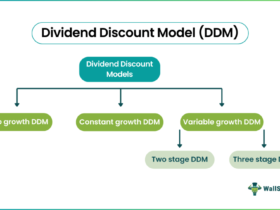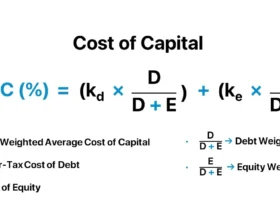1 Why Teamwork is the Key to Success in Finance
The financial sector is not just a domain for talented individuals but a playing field for exceptional teams. A comprehensive financial report, a successful investment strategy, or an effective corporate restructuring plan all require seamless collaboration among departments and areas of expertise. No one can do it all, but a cohesive team can achieve any goal.
In finance, tasks often involve processing large volumes of data, solving complex problems, and making critical decisions under tight deadlines. These challenges become more manageable when responsibilities are shared among members of an effective team. Teamwork not only ensures a fair distribution of tasks but also leverages the strengths of each individual, enhancing the quality of the final outcomes.
Furthermore, the coordination between departments such as accounting, auditing, financial analysis, and investment management is critical to maintaining consistency and accuracy. For example, a market analyst cannot make reliable forecasts without data from the research team. An auditor cannot complete a report without support from the accounting department. Teamwork serves as the bridge that unites all departments toward a common goal.
In a high-pressure and competitive financial environment, teamwork enhances both efficiency and the competitive edge of the team. An effective group not only achieves short-term objectives but also creates sustainable advantages, enabling financial organizations to excel in the marketplace.
2. The Benefits of Teamwork in Finance
Teamwork is more than just collaboration; it is a powerful tool that optimizes performance and work quality in the financial sector. Here are three key benefits teamwork brings to finance professionals:
2.1. Improved Efficiency and Speed
The large workloads and tight deadlines in finance make speed a critical factor. Teamwork allows tasks to be divided according to individual expertise, saving time and ensuring work quality.
- Example in Finance:
During an audit project, the audit team can be divided into smaller groups, with each responsible for specific areas such as balance sheet review, cash flow analysis, or risk assessment. This coordination accelerates project completion without missing key details, particularly for large clients or time-sensitive assignments.
Collaboration also reduces the risk of errors due to overload, allowing teams to focus on resolving complex issues. This improves both the pace and quality of work significantly.
2.2. Optimized Solutions Through Diverse Ideas
Finance demands creativity and flexibility to tackle complex issues like risk management, strategic investments, and market forecasting. Teamwork enables each member to contribute unique perspectives from their expertise, resulting in optimized strategies and sound decisions.
- Example in Finance:
In an investment portfolio management team, a market analyst may provide economic trend forecasts, while a financial expert evaluates risks and profitability. The investment director then uses this information to make final decisions on capital allocation. This multidisciplinary collaboration ensures high returns while effectively managing potential risks.
Diverse perspectives foster comprehensive solutions and enable the team to adapt better to market fluctuations a crucial advantage in the competitive financial industry.
2.3. Personal Development and Team Bonding
Teamwork benefits not only the organization but also individual team members. In finance, where communication, analysis, and data presentation are essential, teamwork provides a platform for mutual learning and personal growth. Collaboration also builds trust and camaraderie, which are crucial for overcoming challenges.
- Example in Finance:
A team of financial advisors tasked with restructuring a struggling business must work closely to gather information, analyze data, and propose viable solutions. This collaboration enhances skills like negotiation, data processing, and presentation, while also strengthening relationships among team members. Such cohesion improves effectiveness in future projects.
Team spirit not only helps groups overcome immediate challenges but also fosters a positive work culture, boosting productivity and job satisfaction.
3. Core Elements of Effective Teamwork in Finance
In the financial sector, where precision and the ability to handle large workloads are essential, effective teamwork is not just supportive but a prerequisite for success. Here are three core elements for building effective finance teams:
3.1. Clear Goals and Role Allocation
Clear objectives and specific roles are the foundation of effective teamwork. In finance, tasks often come with detailed requirements, from preparing financial reports to assessing investment risks. Defining shared goals and allocating tasks based on individual strengths ensures smooth collaboration.
- Application:
- Set SMART goals (Specific, Measurable, Achievable, Relevant, Time-bound). For instance, an audit project may have a two-week deadline with objectives like identifying discrepancies in the balance sheet and proposing solutions.
- Assign tasks appropriately: A member skilled in cash flow analysis handles related tasks, while a data analyst focuses on risk evaluation.
3.2. Transparent and Effective Communication
Communication is key to ensuring seamless collaboration, especially in finance, where decisions must rely on accurate, up-to-date data. Miscommunication can lead to misunderstandings, errors, and delays.
- Application:
- Use communication tools like Slack, Microsoft Teams, or Google Workspace for real-time updates and document sharing.
- Schedule regular check-ins to review progress and address challenges promptly.
Transparency in information sharing not only boosts efficiency but also fosters trust among team members.
3.3. Conflict Resolution
Conflicts are inevitable in teamwork, especially in finance, where high-pressure environments and tight deadlines can lead to disagreements. When handled effectively, conflicts can become opportunities for growth.
- Application:
- Focus on shared goals: Redirect discussions toward solving problems for the team’s benefit.
- Use data as a basis: In disputes, refer to financial reports or concrete data for objective decision-making.
The team leader should remain neutral, mediate discussions, and ensure all voices are heard. Establishing ground rules for conflict resolution early on helps maintain harmony.
4. Methods to Enhance Teamwork Skills in Finance
Enhancing teamwork in the financial sector requires both coordination and the right tools to optimize performance. Here are three key methods:
4.1. Training in Teamwork and Professional Skills
Strong teams begin with capable individuals. Training in soft skills and strengthening professional knowledge help members work more effectively together.
- Application:
- Conduct workshops on communication, conflict resolution, and time management.
- Offer specialized training in financial analysis, risk management, or reporting to ensure all members are equipped to contribute effectively.
4.2. Leverage Collaborative Tools
Digital tools play an essential role in improving teamwork, especially for managing complex financial projects or remote collaboration.
- Application:
- Use task management tools like Trello or Asana to delegate and track tasks.
- Collaborate on financial documents using Google Sheets or Excel SharePoint for real-time updates.
4.3. Strengthen Team Bonding
Fostering connections among team members improves morale and enhances collaboration in financial projects.
- Application:
- Organize team-building activities like sports, retreats, or problem-solving games to build trust.
- Recognize and reward individual contributions to boost motivation.
5. Conclusion: Teamwork in Finance – A Catalyst for High Performance
Teamwork in finance not only optimizes efficiency but also drives creativity and team cohesion. From market analysis and reporting to investment management, every financial task requires seamless collaboration across departments and specializations. With clear goals, effective communication, and conflict resolution, teamwork becomes a powerful tool for achieving high performance in this high-pressure, competitive industry.
Building a strong team not only improves immediate results but also enhances competitiveness, providing long-term advantages for financial organizations. Teamwork is not just about getting the job done it’s about crafting innovative solutions, minimizing risks, and maximizing opportunities.























I love the examples given! They really explain why teamwork is important in finance.
This post shows how important it is to share tasks. Teamwork makes things so much easier!
I really like how teamwork helps everyone work better together! Great article!
This article inspires me to work better with my team. Team spirit really matters!
The tips for enhancing teamwork skills are super helpful! I can’t wait to use them.
Great points about communication! It’s so true that clear talks help avoid mistakes.
Teamwork helps us learn from each other. I believe this is a key to success!
Your article helped me a lot, is there any more related content? Thanks!
I don’t think the title of your article matches the content lol. Just kidding, mainly because I had some doubts after reading the article.
Thank you for your sharing. I am worried that I lack creative ideas. It is your article that makes me full of hope. Thank you. But, I have a question, can you help me?
Com a [bingo](https://bingo-br.com), você pode jogar seus jogos favoritos em uma plataforma justa e segura. E para tornar a experiência ainda mais vantajosa, a plataforma oferece bônus exclusivos que aumentam suas chances de ganhar e tornam cada aposta ainda mais emocionante.
https://lioleo.edu.vn/christmas-section/4.png.php?id=link-bet-200
https://lioleo.edu.vn/dang-ky-form/4.png.php?id=bim-bet
Na [allwin568](https://www.allwin568-br.com), você conta com um atendimento ao cliente excepcional, disponível 24/7 para resolver todas as suas dúvidas de maneira rápida e eficiente. Com uma equipe especializada pronta para ajudar em tempo real, você pode resolver qualquer questão, seja sobre transações financeiras, regras dos jogos ou até mesmo questões técnicas. A plataforma garante que você tenha o suporte necessário, sempre com agilidade e precisão, proporcionando uma experiência de cassino online sem estresse ou preocupações.
Your point of view caught my eye and was very interesting. Thanks. I have a question for you.
It is perfect time to make some plans for the long run and it is time to be happy. I have read this publish and if I may just I wish to recommend you some interesting issues or suggestions. Perhaps you can write subsequent articles referring to this article. I desire to learn more issues approximately it!
It’s very effortless to find out any matter on net as compared to textbooks, as I found this piece of writing at this web site.
I like what you guys are usually up too. This sort of clever work and exposure! Keep up the terrific works guys I’ve included you guys to my own blogroll.
Good https://is.gd/tpjNyL
Thanks for sharing. I read many of your blog posts, cool, your blog is very good.
I don’t think the title of your article matches the content lol. Just kidding, mainly because I had some doubts after reading the article.
Thank you for your sharing. I am worried that I lack creative ideas. It is your article that makes me full of hope. Thank you. But, I have a question, can you help me?
Can you be more specific about the content of your article? After reading it, I still have some doubts. Hope you can help me.
1zyj5u
duzy6a
Thanks for sharing. I read many of your blog posts, cool, your blog is very good.
Thank you for your sharing. I am worried that I lack creative ideas. It is your article that makes me full of hope. Thank you. But, I have a question, can you help me?
Thanks for sharing. I read many of your blog posts, cool, your blog is very good.
I don’t think the title of your article matches the content lol. Just kidding, mainly because I had some doubts after reading the article.
Thanks for sharing. I read many of your blog posts, cool, your blog is very good.
5pzc7t
g2jdfi
I don’t think the title of your article matches the content lol. Just kidding, mainly because I had some doubts after reading the article.
I don’t think the title of your article matches the content lol. Just kidding, mainly because I had some doubts after reading the article.
пластиковые окна домодедово – выезд в Домодедово скидка 10% жителям Домодедово
Way cool, some valid points! I appreciate you making this article available, the rest of the site is also high quality. Have a fun.
Can you be more specific about the content of your article? After reading it, I still have some doubts. Hope you can help me.
Your point of view caught my eye and was very interesting. Thanks. I have a question for you.
Can you be more specific about the content of your article? After reading it, I still have some doubts. Hope you can help me.
**mind vault**
mind vault is a premium cognitive support formula created for adults 45+. It’s thoughtfully designed to help maintain clear thinking
What’s up to every one, the contents existing at this site are really remarkable for people
experience, well, keep up the good work fellows.
**mind vault**
mind vault is a premium cognitive support formula created for adults 45+. It’s thoughtfully designed to help maintain clear thinking
lyayo5